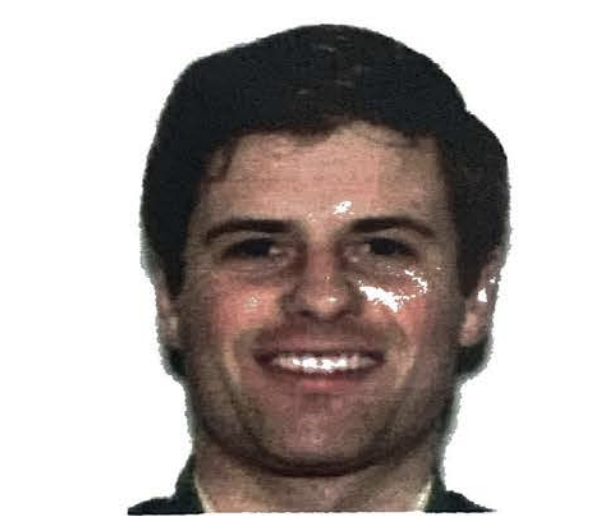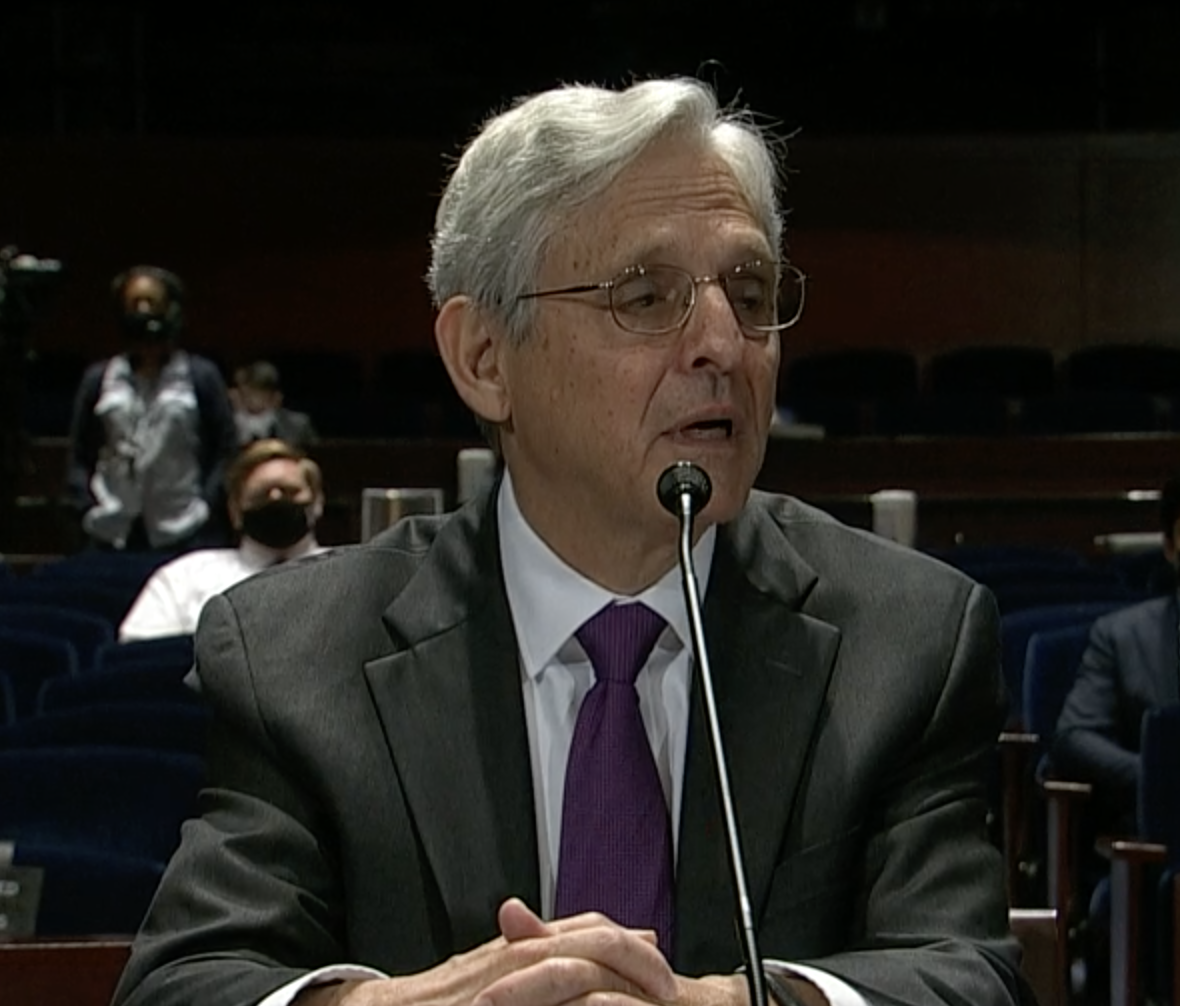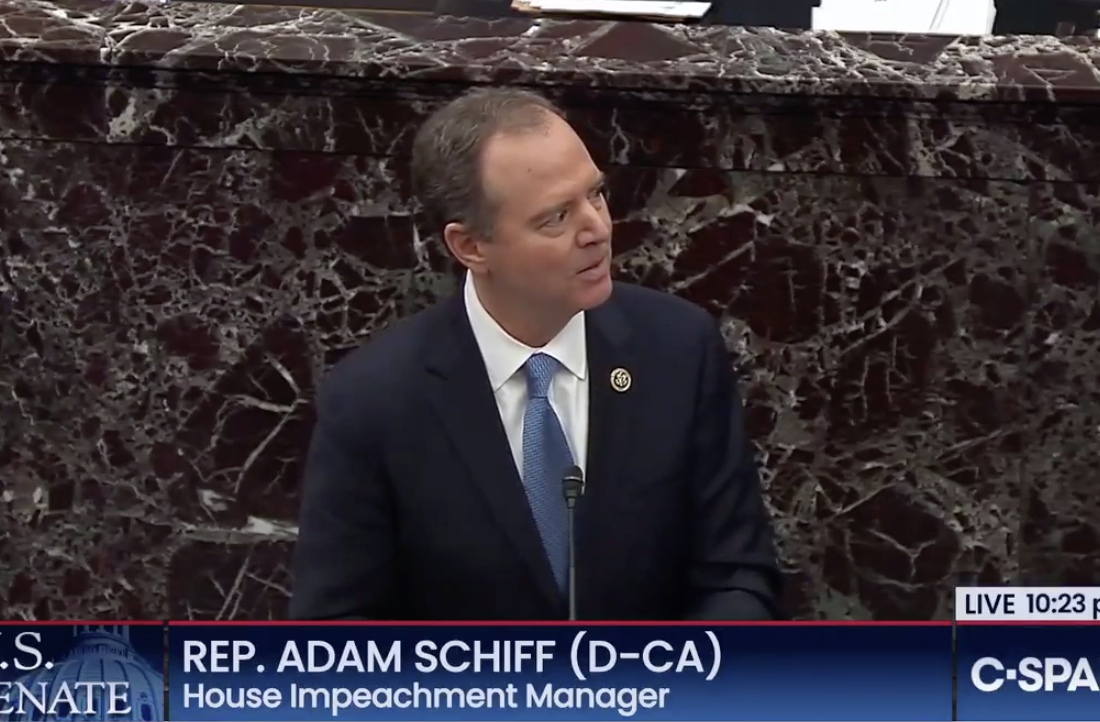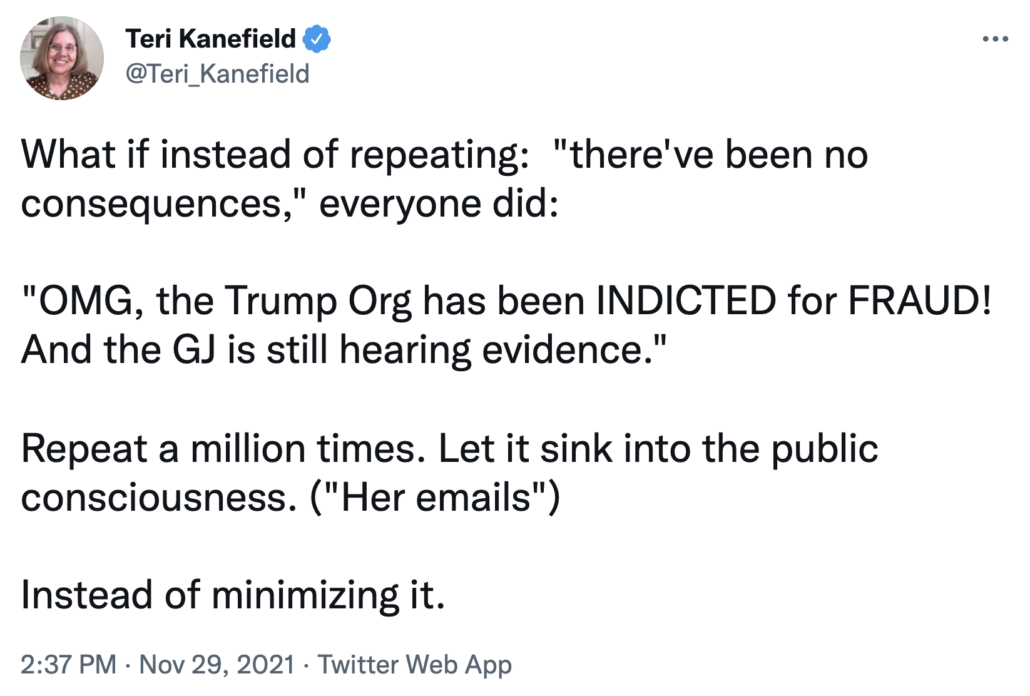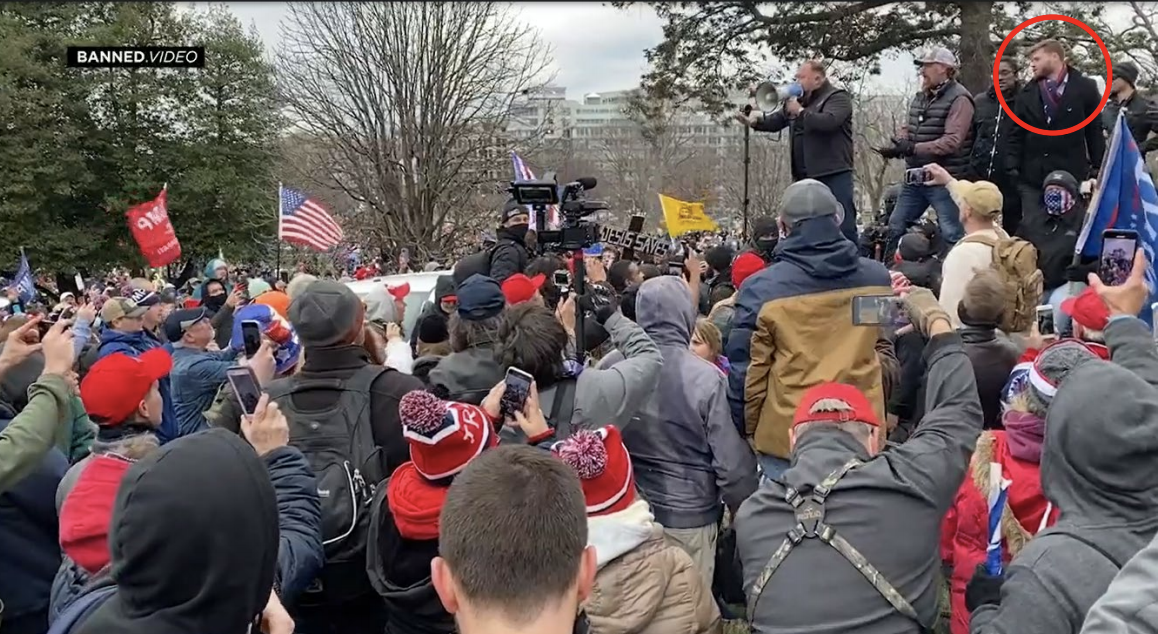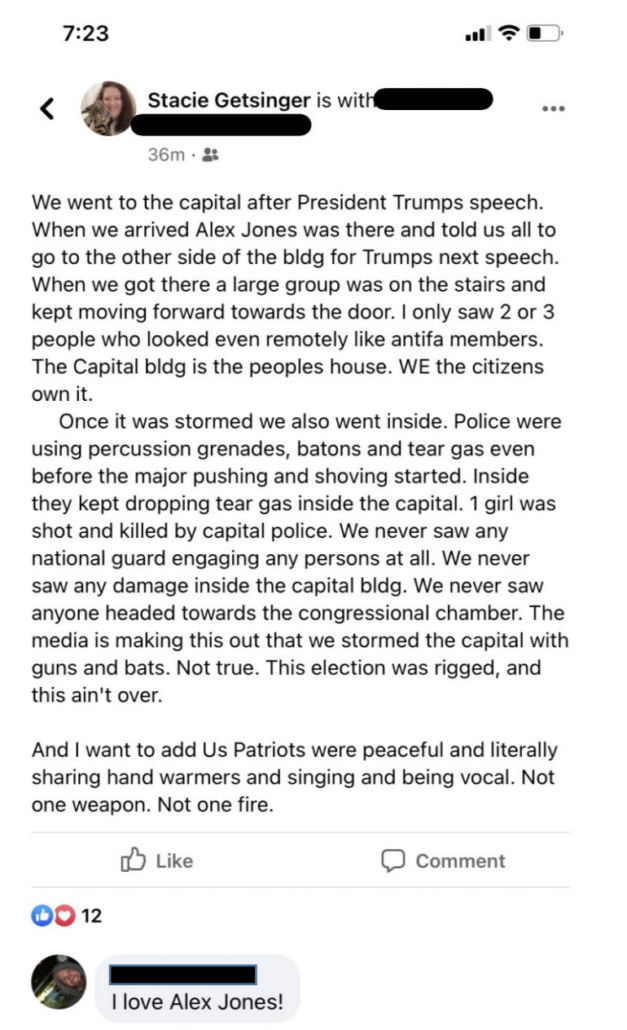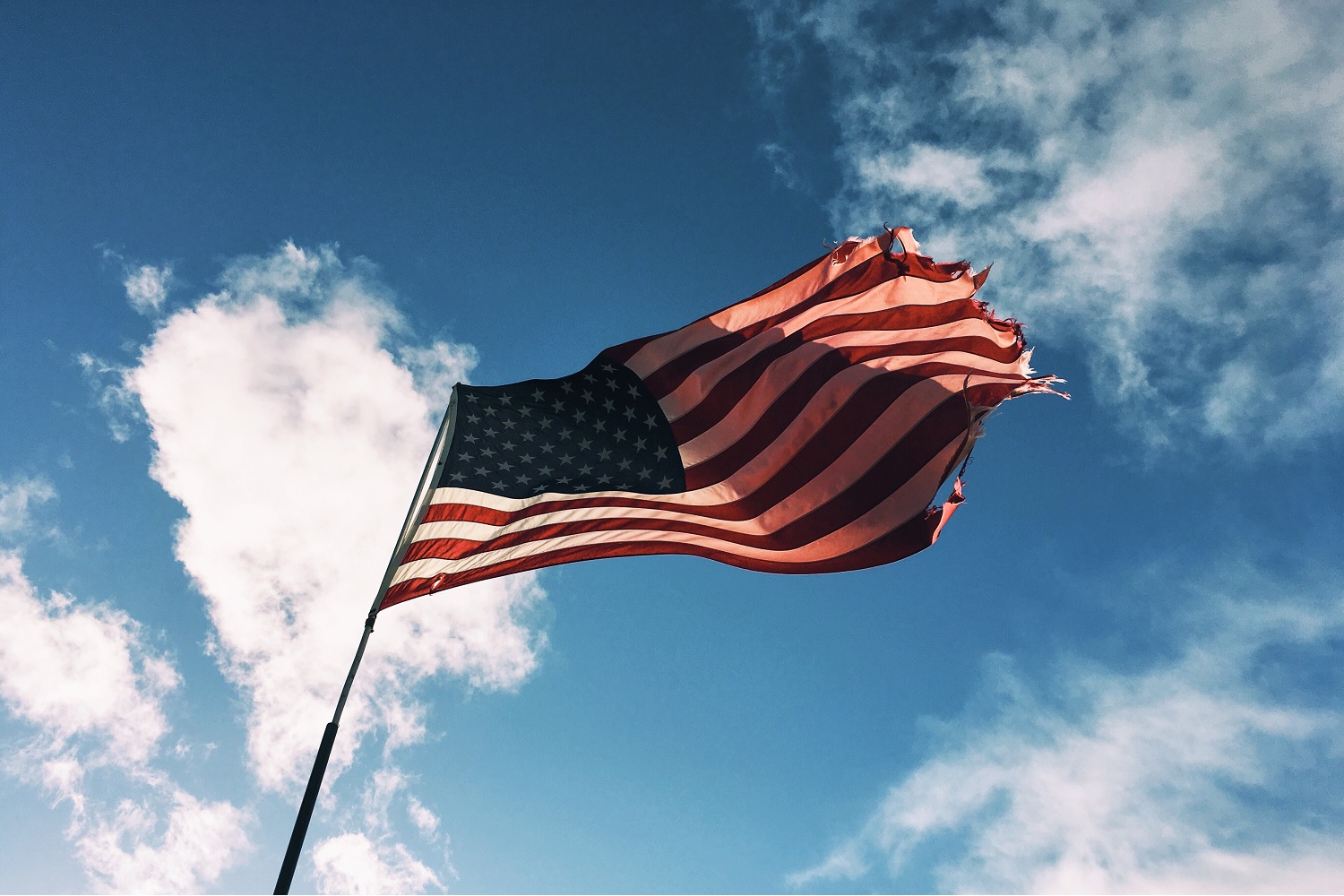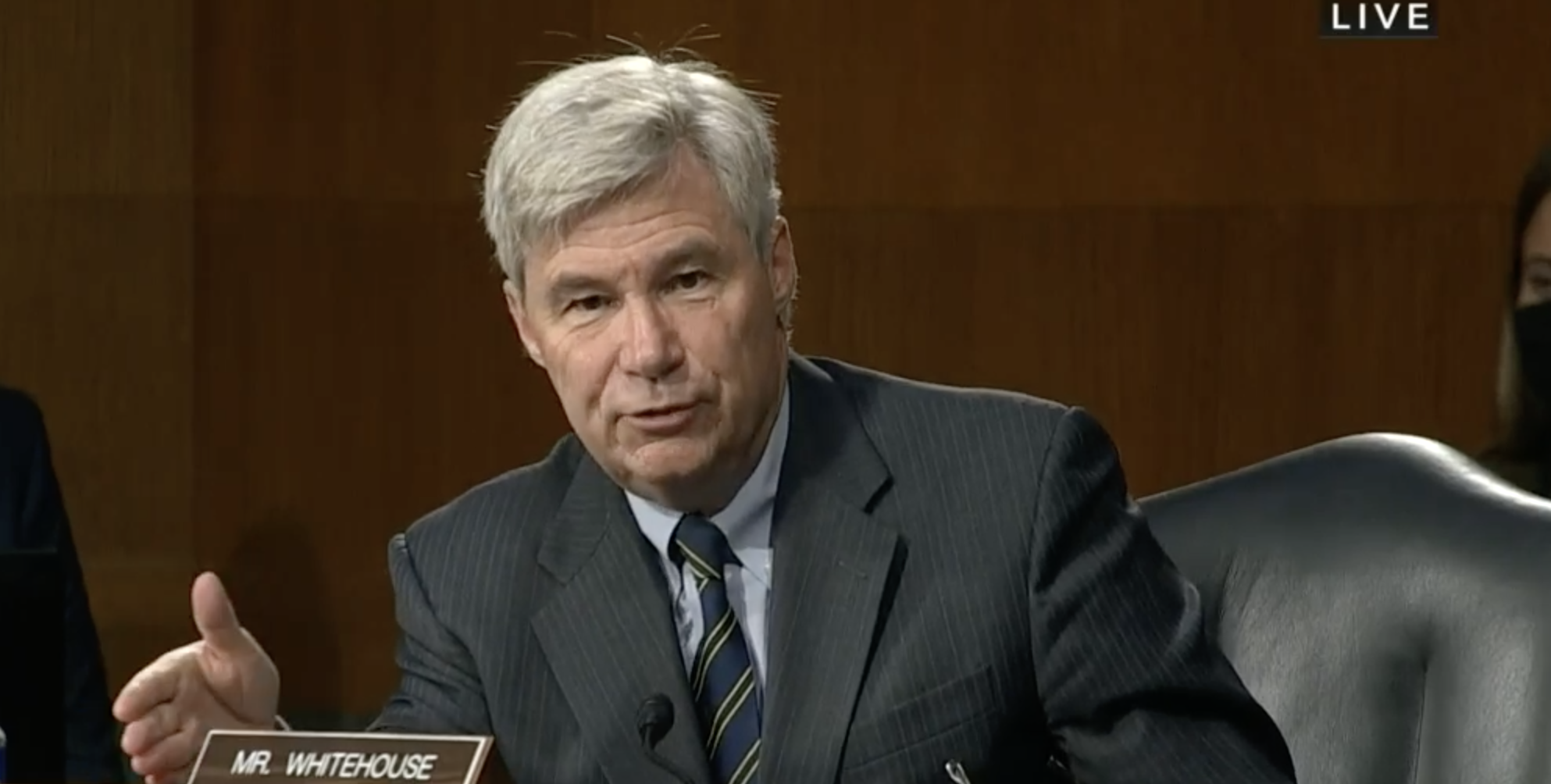Jeffrey Rosen Targeted Project Veritas’ Office Manager Long before Merrick Garland Targeted James O’Keefe
According to a recent NYT story, Project Veritas paid $50,000 to a former Mike Pence lawyer and House staffer, Mark Paoletta, to get members of Congress to push back against the criminal investigation into the rat-fucking organization.
After the criminal investigation into Project Veritas became public last fall, a prominent Republican lawyer who was lobbying on behalf of the organization and Mr. O’Keefe briefed a group of congressional Republicans on the case, to urge them to try to persuade the Justice Department to back off the investigation because the group did nothing wrong, according to a person briefed on the matter.
[snip]
Lobbying filings show that Mr. Paoletta was paid $50,000 during the last two months of last year to inform members of Congress about the F.B.I. raid on Mr. O’Keefe.
That’s really telling. After Project Veritas won a fight to get a Special Master appointed to review records seized in a raid on James O’Keefe and others last year, they balked at DOJ’s effort to make them foot the entire bill, telling a tale about their gritty “upstart journalism.”
The government argues that an upstart journalism organization with a current annual budget that recently hovers around $22 million is better suited to fund Special Master proceedings than a goliath arm of the U.S. government featuring a long-standing bloated budget, currently at $31.1 billion.2 The government’s demand that a press entity bear considerable financial burdens to defend against the government’s unconstitutional attack on a free press is corrosive to the First Amendment. The exercise of First Amendment rights is a guaranteed right, not a luxury subject to taxation at the government’s whim. Imposing daunting costs during the pendency of an investigation meant to resolve important First Amendment questions inflicts its own kind of abridgement. When exorbitant costs may be levied against the media simply for acting in accord with settled First Amendment precedent, the process becomes the punishment.
[snip]
For Project Veritas, an upstart journalism organization, each dollar spent on Special Master fees and expenses is a dollar not spent publishing news stories or investigating leads.
They won that fight and thus far, Special Master Barbara Jones has billed almost $40,000, which will be split 50-50.
It turns out, though, that PV’s claim that they would spend every cent saved on Special Master fees on what they euphemistically call “news stories,” was false. Instead, they were spending it to get Chuck Grassley (whose former top staffer Barbara Ledeen used to have close ties to PV), Jim Jordan, and other of the most corrupt Republicans to write letters to Merrick Garland complaining about “brazen and inconsistent standards” and “partisan or other improper motive.” (As we’ll see, it turns out they should have been complaining to Jeffrey Rosen.)
What’s interesting is those letters that Barbara Ledeen’s former boss and Jim Jordan and Ron Johnson signed all suggest they took their understanding of PV’s actions entirely from the public record. They cite news articles.
Congress was told that Don Jr was involved before the stupidest Republicans wrote to complain
Not so, as reported by the NYT. Paoletta apparently knew — and shared — details that had not yet been reported by the press. Paoletta knew of a September 6, 2020 fundraiser held by Elizabeth Fago and attended by Don Jr where Ashley Biden’s diary — allegedly stolen — was passed around.
In August, Ms. Harris reached out to Robert Kurlander, a friend who had been sentenced to 40 months in prison in the 1990s on a federal fraud charge and had expressed anti-Biden sentiments online, to say she had found the diary. The two believed they could sell it, allowing Ms. Harris to help pay for the lawyers representing her in the custody dispute.
New details from interviews and documents have further fleshed out what happened next. Mr. Kurlander contacted Elizabeth Fago, the Trump donor who would host the fund-raiser attended by Donald Trump Jr. When first told of the diary, Ms. Fago said she thought it would help Mr. Trump’s chances of winning the election, according to two people familiar with the matter.
Richard G. Lubin, a lawyer for Ms. Fago, declined to comment.
On Sept. 3, Ms. Fago’s daughter alerted Project Veritas about the diary through its tip line.
Three days later, Ms. Harris and Mr. Kurlander — with the diary in hand — attended the fund-raiser attended by Donald Trump Jr. at Ms. Fago’s house in Jupiter, Fla., to see whether the president’s re-election campaign might be interested in it. While there, Mr. Kurlander showed others the diary. It is unclear who saw it.
It appears that Paoletta had originally been told — and told members of Congress — that Don Jr advocated calling the FBI, only to follow up to express uncertainty about that point.
The lawyer, Mark Paoletta, said that upon learning about the diary at the fund-raiser, Donald Trump Jr. showed no interest in it and said that whoever was in possession of it should report it to the F.B.I. But shortly thereafter Mr. Paoletta, who had served as Vice President Mike Pence’s top lawyer in the White House, called back the congressional Republicans to say he was unsure whether the account about Donald Trump Jr.’s reaction was accurate.
We know from past history, Don Jr doesn’t call the FBI when offered dirt on an opponent. Instead, he says “If it’s what you say, I love it, especially closer to the election.”
Project Veritas was willing to pay $50,000 to tell members of Congress that this crime might impact powerful fundraisers (Fago was named on the PV warrants) and the former President’s son, but didn’t want to foot the full bill for a Special Master.
SDNY always gets emails before they do an overt search
The fact that PV told members of Congress that this involved the former President’s son explains why PV is so pissed upon discovering what has been obvious to me from the start: That before obtaining warrants to seize James O’Keefe’s phones, DOJ had first obtained emails that provided the evidence to get the warrants for his phones.
The Government disclosed many of its covert investigative steps in the ex parte context of the Affidavit, including each email search warrant it had obtained pursuant to the SCA in this investigation.
This is precisely what SDNY did with Michael Cohen and Rudy Giuliani, and it’s what Magistrate Judge Sarah Cave was talking about when she referred to the “considerable detail” in the affidavit.
Third, the Court has reviewed the Materials in camera and observes that they contain considerable detail about individuals who may have already provided information to the Government—voluntarily or involuntarily—such that unsealing of the Materials “could subject [them] to witness tampering, harassment, or retaliation.”
PV revealed that in a motion asking Judge Analisa Torres to claw back this information.
The government apparently disdains the free press, and candor to the Court and opposing counsel. In light of the government’s violations of Project Veritas’s First Amendment, journalistic, and attorney-client privileges, as well as the government’s attendant failure to disclose these matters before or during the litigation of our motion for appointment of a Special Master, Project Veritas requests that this Court, pursuant to its supervisory powers, inherent authority, and Fed. R. Crim. P. 41(g), enter an Order requiring the government to:
(1) immediately halt access, review, and investigative use of Project Veritas materials that the government obtained from Microsoft (cf. November 12, 2021 Order acknowledging pause in government extraction and review of James O’Keefe’s mobile devices);
(2) inform this Court and counsel whether the government used a filter team to conduct a review of the data it seized from Microsoft on the basis of both attorney-client and journalistic privileges;
(3) inform this Court and counsel of the identities of any prosecutors, agents, or other members of the investigative team who have reviewed any data seized from Microsoft, what data they reviewed, and when they reviewed it; and
(4) disclose to the Court and counsel the identity of any other third party to which the government issued demands for Project Veritas data under the Electronic Communications Privacy Act (“ECPA”) with or without a non-disclosure order.
This interim relief is necessary to avoid compounding the harm to Project Veritas caused by the government’s violations of law and principles of candor and to enable Project Veritas to seek appropriate further relief.
I’ve put the dates of these warrants below; those dates and targets totally undermine everything PV has been complaining about.
PV has been complaining about “journalists” when DOJ first found evidence of a crime from their office manager
That’s because the first person targeted at PV was their “human resources” manager; that may be a reference to Jennifer Kiyak, who is named in the warrant targeting O’Keefe but listed on Project Veritas Exposed as PV’s Office Manager.
An office manager would have been the one to arrange payment of $40,000, and by getting her emails and — given that the FBI first targeted her in a subscriber record, may have been traced backwards from contacts with Ms. Biden — DOJ probably obtained plenty of evidence that the “journalists” had done far more than journalism.
Moreover, the first warrant to get “journalists'” emails was obtained while Jeffrey Rosen was Acting Attorney General, and all but one of these warrants for email (the one against O’Keefe) were obtained before Merrick Garland was confirmed. All of these email warrants were obtained before Garland imposed his new media guidelines, guidelines that Billy Barr’s DOJ never adhered to.
In other words, PV has been complaining for months that Merrick Garland targeted “journalists” when in fact they should be complaining that Jeffrey Rosen targeted someone who would, in no way, under any administration, be covered by media guidelines.
DOJ tells PV to hold their complaints until they are indicted
DOJ’s response to PV’s wails (which I wrote up in more detail here) is genuinely hysterical. They say, over and over, that PV can wait until they’re indicted to challenge these warrants.
Movants can raise these issues if there is an indictment filed charging them in connection with the investigation,
[snip]
The materials referenced by the Movants were obtained pursuant to duly authorized legal process that are not subject to challenge by the Movants in this pre-indictment stage.
[snip]
Second, the Movants seek pre-indictment discovery regarding the process used to review the materials referenced by the Movants, the identities of those who participated in that process, and the identities of third parties on which other legal process may have been served in the course of the investigation.
[snip]
To the extent the Movants may potentially be entitled at some point to the disclosures that they seek, any such entitlement would only be triggered, if at all, by the filing of an indictment charging them in connection with the investigation, and not before.2 In the event of a criminal proceeding, as Judge Oetken noted, they would have the opportunity to litigate any privilege or suppression issues, but they cannot do so during the pre-indictment phase of an ongoing grand jury investigation.
They acknowledge that PV would love to know who or what else has been investigated.
Of course, the Movants, like any subjects of a federal grand jury investigation, would like to know about every investigative step the Government is taking during the course of a criminal investigation, but that is not the law, for good reason.
No doubt so would Don Jr.
It also suggested there are other aspects of this investigation that DOJ is keeping secret.
The Government refrained from publicly disclosing details of the investigation, and continues to do so, for the same reasons that this Court denied production to the Movants of the affidavit (the “Affidavit”) submitted in support of the issuance of the search warrant dated November 5, 2021 that is the focus of this Part I matter and that Judge Cave ruled should remain sealed: to protect the ongoing grand jury investigation.
Keep in mind, there are necessarily other warrants out there that list other crimes, such as ones involving Harris and Kurlander that would name theft itself. In fact, the first order targeting PV mentions 18 USC 873 — blackmail.
Which means we can’t rule out that the nomination of Fago to the National Cancer Advisory Board a month after the election might be under investigation too.
These events are covered by three SDNY dockets: 21-mc-813 for James O’Keefe, 21-mc-819 for Eric Cochran, and 21-mc-825 for Spencer Meads.
2020
June: Ashley Biden moves to Philadelphia.
July: Aimee Harris moves into space formerly occupied by Ms. Biden.
August: Harris reaches out to fraudster Robert Kurlander, who contacts Elizabeth Fago.
September 3: Stephanie Walczak offers diary to PV.
September 6: Diary is shared at a fundraiser attended by Jr.
Mid-September: Kurlander and Harris fly to NY with the diary. Spencer Meads travels to Florida and Harris shows more of Ms. Biden’s belongings.
Early October: A PV operative calls Ms. Biden and claims he wants to return the diary; PV takes her agreement as confirmation the diary is hers.
October 12: O’Keefe sends email, not mentioning Ms. Biden by name (but clearly referring to her) explaining his decision not to publish “Sting Ray” Story.
October 16: PV calls Joe Biden to extort an interview.
Late October: PV pays $40,000 for the diary.
October 25: National File publishes pages from Ashely Biden’s diary, linking parallel New York Post campaign targeting Hunter. It explains the provenance of the diary this way:
National File also knows the reported precise location of the physical diary, and has been told by a whistleblower that there exists an audio recording of Ashley Biden admitting this is her diary.
[snip]
National File obtained this document from a whistleblower who was concerned the media organization that employs him would not publish this potential critical story in the final 10 days before the 2020 presidential election. National File’s whistleblower also has a recording of Ashley Biden admitting the diary is hers, and employed a handwriting expert who verified the pages were all written by Ashley. National File has in its posession a recording of this whistleblower detailing the work his media outlet did in preparation of releasing these documents. In the recording, the whistleblower explains that the media organization he works for chose not to release the documents after receiving pressure from a competing media organization.
November 3: PV provides the diary to local law enforcement in FL.
November 22: DOJ uses subpoena for subscriber information of PV’s Human Resources Manager.
November 24: DOJ obtains 2703(d) order for HR manager’s email headers from 9/1/2020 to present.
December 8: Fago appointed to National Cancer Advisory Board.
2021
January 14: DOJ obtains warrant for emails of Eric Cochran, Spencer Meads, and HR manager from 1/1/20 through present.
January 26: DOJ obtains warrant for emails from another PV “journalist” from 1/1/20 through present.
March 5: DOJ obtains warrant for emails of three other PV “journalists” from 1/1/20 through 12/1/20.
March 9: DOJ obtains email headers for additional PV “journalist” from 9/1/20 through 12/1/20.
April 9: DOJ obtains warrant for O’Keefe’s emails from 9/1/20 through 12/1/20.
October 26: Paul Calli call DOJ, asks for AUSA Mitzi Steiner, and asked to speak about the PV investigation; Steiner asked how Calli had obtained her name, what else he had obtained, and declined to speak with Calli.
October 27: Lawyers for Project Veritas inform the DOJ that they will accept service for a subpoena relating to the investigation
November 3, 3:49 PM: Search warrants for Eric Cochran and Spencer Meads approved.
November 4, AM: FBI executes search warrants on former PV employees, Cochran and Spencer Meads.
November 4: PV lawyers accept service of subpoena.
November 4, one hour after the search: Mike Schmidt reaches out to Cochran and O’Keefe for comment about the investigation.
November 5, 11:18 AM: Warrant for O’Keefe authorized
November 5: NYT publishes story on investigation including language that PV would later baseless claim had to have come from the FBI.
November 6: FBI executes a search warrant on James O’Keefe
November 6: Schmidt contacts O’Keefe for comment.
November 6: Lawyers for Project Veritas ask the FBI to sequester material from the phone.
November 7: DOJ declines PV’s request and states the FBI has complied with all media guidelines.
November 8, 6:11PM: DOJ emails PV and tells them the extraction may start as soon as the next day.
November 8: After PV says it’ll file a legal challenge, FBI says it’ll only stop extraction after PV files such a challenge.
November 10: On behalf of PV, Calli Law moves to appoint a Special Master.
November 11, 12:51-12:53AM: Calli asks for confirmation that DOJ stopped extraction and review on O’Keefe’s phone on November 8.
November 11, 7:57AM: DOJ responds that the substantive review of O’Keefe’s phone was paused upon filing of motion on November 10.
November 11; 2:13PM: Judge Analisa Torres sets initial briefing schedule; in response to Torres order, DOJ stops extraction of O’Keefe phone.
November 12: In response to DOJ request, Torres extends briefing schedule.
November 12: Greenberg Traurig lawyer Adam Hoffinger, representing Eric Cochran, asks for Special Master to apply to materials seized from him, as well.
November 12: Letter signed by FL attorney Brian Dickerson but apparently docketed by NY lawyer Eric Franz asks for Special Master to apply to Spencer Meads
November 12, 3:49PM: Calli asks for clarification on review and extraction.
November 12, 3:59PM: DOJ responds that, “upon the filing of your motion, the Government paused the review of all material obtained from the search of your client’s residence.”
November 14: Calli submits clarification letter regarding extraction and review.
November 15: Torres sets schedule in Cochran docket.
November 15: DOJ requests permission to reply to PV on November 19.
November 15: Calli requests inquiry into government leaks to NYT.
November 16: Torres grants permission to respond on November 19.
November 16: Ian H. Marcus Amelkin asks to delete initials of PV source, A.H., from docket.
November 17: Torres denies Amelkin request without prejudice.
November 17: Cochran motion to appoint Special Master.
November 18: For Meads, Dickerson formally moves for Special Master (and also complains that FBI seized dated devices).
November 19: Calli requests extension on response deadline for PV subpoena.
November 19: Government files opposition to request for Special Master and inquiry into purported leaks.
November 19: DOJ requests permission to respond to motion for extension on subpoena. Torres grants request.
November 21: DOJ opposition to extend subpoena deadline.
November 21: Government motion to oppose unsealing affidavits.
November 22: Torres denies motion for extension on subpoena.
November 22: PV reply to government opposition to Special Master.
November 23: Torres denies motion (including from RCFP) to unseal affidavits.
November 23: Cochran reply to government opposition to unseal affidavits.
November 24: Meads reply to refusal to unseal affidavits, including letters from House and Senate complaining to DOJ.

